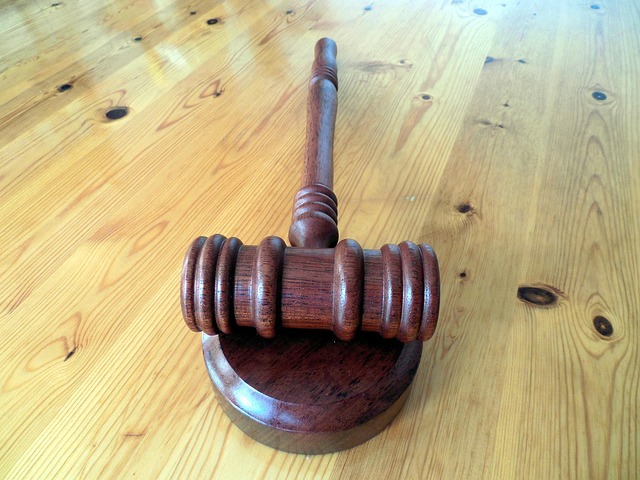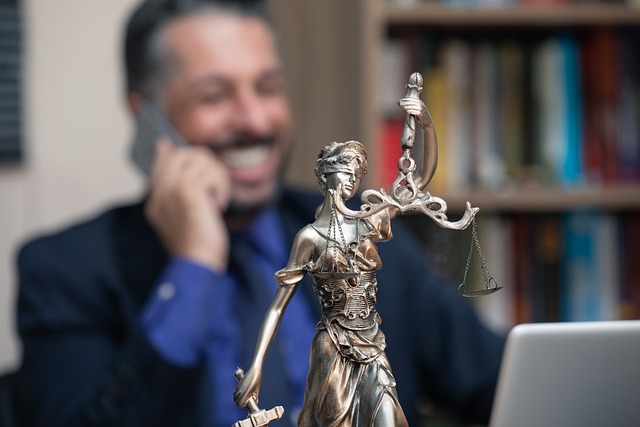Corporate crime investigations require meticulous navigation through complex financial records, structures, and legal frameworks. The process involves evidence gathering, expert opinions, and specialized knowledge to address diverse accusations from accounting irregularities to executive misconduct. Staying ahead of evolving tactics and adapting to changing regulations is crucial. The ultimate goal is justice, achieved by empaneling a criminal jury or alternative legal proceedings. Law enforcement, regulatory agencies, and collaboration between them play vital roles in uncovering misconduct and protecting public interests. The process of empaneling a criminal jury, involving thorough juror screening and selection, ensures fair judgments for complex cases. Successful prosecutions send messages about accountability, influencing corporate strategies to enhance ethical training and risk management systems, shaping the dynamics of jury trials in high-stakes cases.
Corporate Crime Investigations delve into complex legal and financial territories, where businesses and their leaders face accusations of unethical conduct. Understanding this landscape involves navigating intricate laws and regulatory frameworks. This article explores key aspects, from the initial investigation stages to the crucial process of empaneling a criminal jury. We analyze evidence collection methods, legal considerations during trials, and post-verdict implications, offering insights into strategies for prevention and impact mitigation in the corporate realm.
- Understanding Corporate Crime Investigations: A Complex Landscape
- The Role of Law Enforcement and Regulatory Agencies
- Building a Case: Evidence Collection and Analysis Techniques
- Process of Empaneling a Criminal Jury: Key Considerations
- Impact and Prevention: Post-Trial Implications and Future Strategies
Understanding Corporate Crime Investigations: A Complex Landscape
Corporate crime investigations are a complex landscape that requires meticulous navigation. It involves delving into intricate financial records, analyzing complex corporate structures, and understanding the nuances of legal frameworks governing businesses. The process often starts with gathering evidence through documented transactions, interviews, and expert opinions. This initial phase is crucial for building a robust case against individuals or entities suspected of fraudulent activities within a respective business.
The challenge intensifies when considering the unique dynamics of corporate environments. Accusations can span from accounting irregularities to executive misconduct, each demanding specialized knowledge to unravel. An unprecedented track record in these investigations is essential, as it requires professionals to stay ahead of evolving tactics and adapt to the ever-changing regulatory landscape. The ultimate goal is to secure justice by ensuring that those responsible are held accountable, whether it involves a successful process of empaneling a criminal jury or alternative legal proceedings for his clients.
The Role of Law Enforcement and Regulatory Agencies
Law enforcement and regulatory agencies play a pivotal role in corporate crime investigations, ensuring that businesses operate within legal boundaries and hold accountable those who engage in fraudulent activities. These entities are responsible for conducting thorough inquiries, gathering evidence, and presenting cases to courts. The process of empaneling a criminal jury is a crucial step where the selected individuals from the community are tasked with making fair and impartial judgments. This democratic mechanism ensures that justice is served, especially in complex corporate cases.
Effective investigations require collaboration between law enforcement and regulatory bodies to uncover misconduct, protect the public interest, and achieve extraordinary results. By working together, they can navigate the intricate web of financial transactions, legal loopholes, and corporate structures to bring perpetrators to justice. Moreover, their efforts contribute to fostering integrity within philanthropic and political communities by deterring unethical practices and promoting transparency. This collaborative approach is essential for winning challenging defense verdicts and upholding the rule of law.
Building a Case: Evidence Collection and Analysis Techniques
Building a strong case in corporate crime investigations requires meticulous evidence collection and analysis techniques. This process involves sifting through vast amounts of data, documents, and digital records to identify relevant facts that can stand up in court. Forensic accountants, IT specialists, and legal experts work collaboratively to unearth critical information that might otherwise remain hidden. Techniques such as pattern recognition software and data mining algorithms aid in uncovering suspicious activities, financial misdeeds, or illicit transactions—the hallmarks of white-collar crime.
The process of empaneling a criminal jury plays a pivotal role in achieving extraordinary results in jury trials. By presenting compelling evidence and clear interpretations, prosecutors aim to secure a fair and impartial jury that can deliberate the facts objectively. Effective case building ensures that the jury understands the complexities of the corporate crime and is equipped to make informed decisions based on the evidence presented, ultimately leading to just outcomes in white-collar defense cases.
Process of Empaneling a Criminal Jury: Key Considerations
The process of empaneling a criminal jury is both an art and a science. It involves meticulous selection from a pool of potential jurors to ensure a fair and impartial panel. The primary goal is to achieve extraordinary results, especially in complex cases where winning challenging defense verdicts hinges on public perception and legal acumen. This initial step is crucial, as the composition of the jury can significantly influence the outcome.
Juror selection begins with thorough screening through questionnaires and interviews. This stage aims to uncover biases, pre-conceived notions, or conflicts of interest. Attorneys must consider not just the facts but also the potential jurors’ backgrounds, experiences, and ability to compartmentalize. The process demands skill in both asking the right questions and interpreting responses to ensure a diverse yet compatible group capable of rendering a just verdict.
Impact and Prevention: Post-Trial Implications and Future Strategies
The impact and prevention of corporate crime investigations extend far beyond the trial phase. High-stakes cases involving white collar and economic crimes often have significant post-trial implications, shaping future strategies for both legal entities and corporations alike. One crucial aspect is the process of empaneling a criminal jury, which plays a pivotal role in ensuring a fair trial. This meticulous process involves selecting a diverse and impartial jury panel to decide the fate of corporate defendants, a step that can heavily influence public perception and future legal approaches.
Post-trial, successful prosecutions send a powerful message about accountability and deterrence. However, they also prompt corporations to reevaluate their internal controls and compliance measures. In response to severe penalties and damage to reputation, many organizations adopt proactive strategies, such as enhancing ethical training programs and implementing robust risk management systems. This not only helps in mitigating future risks but also reinforces a culture of integrity within the corporate landscape, ultimately shaping the dynamics of jury trials in high-stakes cases.
Corporate crime investigations demand a multifaceted approach, encompassing legal strategy, evidence gathering, and regulatory oversight. Understanding the intricate processes, from building a robust case through advanced analysis techniques to empaneling a fair and impartial jury, is paramount in navigating this complex landscape. By examining the impact of these cases post-trial and adopting proactive prevention strategies, we can foster a more accountable corporate environment. The seamless integration of law enforcement, regulatory agencies, and judicial processes plays a pivotal role in ensuring justice and deterring future misconduct.






